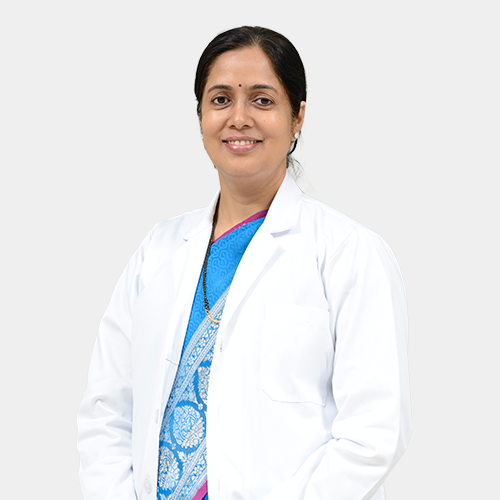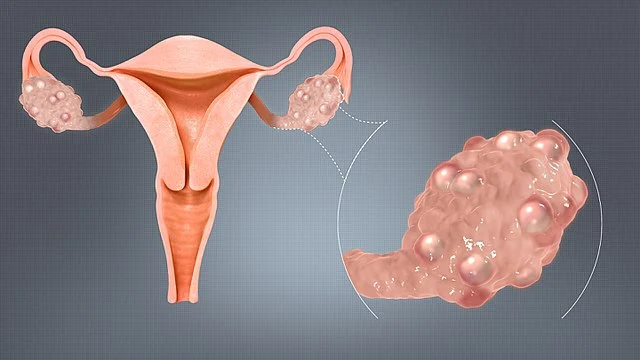Polycystic Ovarian Syndrome (PCOS) Treatment
India
-
Our Price USD 5985
-
Hospital Price USD 6650
-
You Save : USD 665
Booking Amount: USD 599. Pay Remaining 90% at the hospital.
Book NowAdditional Credit
Among the important extras we offer as part of the Additional Credit are the following:
-
Site Tourism For The Patient & Attendant
-
Airport Pick & Drop Service
-
Ambulance service at airport
-
Priority appointments with The Doctor
-
Cancel Easily Anytime with Full Refund
-
Room Upgradation
-
Free Online Doctor Consultation Valued at USD 20
-
Free hotel Stay for 5 to 7 days Accordingly
-
Welcome Kit at Arrival
-
Interpreter
-
Medical Visa Assistance
What is Included?
- Doctor consultation charges
- Lab tests and diagnostic charges
- Room charges inside hospital during the procedure
- Surgeon Fee
- Cost of implant
- Nursing charges
- Hospital surgery suite charges
- Anesthesia charges
- Routine medicines and routine consumables (bandages, dressings etc.)
- Food and Beverages inside hospital stay for patient and one attendant.
What is not Included?
- Extra Radiology Investigations
- Healthcare Professionals Charges of other consultations.
- Other Requested Services such as Laundry etc.
- Additional Pharmaceutical Products and Medicines After Discharge from Hospital.
- Management of Conditions Unrelated to Procedures or Pre-Existing.
- The cost of any additional implants will be in addition to the package cost.
Package Description
Procedure Description:
Polycystic Ovarian Syndrome (PCOS) Treatment
Although PCOS cannot be cured, there are therapies that help lessen symptoms. Consult a healthcare provider if you have irregular periods, are having problems getting pregnant, or have significant acne or hair growth. Modifying one's lifestyle can help alleviate some of the symptoms of PCOS. A balanced diet and regular exercise can help lower body weight and lower the risk of type 2 diabetes.
PCOS-related infertility can be treated with medication, surgery, or changes in lifestyle to promote regular ovulation. Although it has significant hazards, in-vitro fertilization (IVF) is a possibility.
Disease Description:
PCOS, or polycystic ovarian syndrome, is a prevalent hormonal disorder affecting women who are fertile. Though the onset commonly occurs in adolescence, the symptoms could change over time.
Hormonal abnormalities, irregular periods, high testosterone levels, and ovarian cysts can all be symptoms of PCOS. Unusual menstrual cycles, typically accompanied by insufficient ovulation, can pose challenges to conceiving. One major contributor to infertility is PCOS.
Since PCOS is a chronic illness, there is no known cure. On the other hand, medication, lifestyle modifications, and fertility treatments can all help with some symptoms.
PCOS has no established cause, although women who have type 2 diabetes or a family history are more susceptible.
Disease Sign and Symptoms:
Each person may experience polycystic ovarian syndrome symptoms differently. The course of symptoms might vary, and they frequently happen without apparent cause.
Symptoms that could exist include:
1. periods that are heavy, prolonged, erratic, unpredictable, or nonexistent
2. Unable to conceive
3. Oily or acne-prone skin
4. Excessive facial or body hair
5. Hair thinning or balding with a masculine pattern
6. weight gain, particularly in the abdominal area.
Type 2 diabetes is one of the other health issues that PCOS patients are more prone to experience.
2. elevated blood pressure, or hypertension
3. elevated cholesterol
4-heart conditions
5. Endometrial cancer, or cancer of the uterine lining.
Anxiety, despair, and a negative body image can also be brought on by PCOS. Social stigma may result from certain conditions, including obesity, infertility, and unwelcome hair growth. Other aspects of life, like family, relationships, employment, and community activity, may be impacted by this.
Disease Causes:
PCOS's precise etiology is unknown. Among the variables that could be important are:
1. Resistance to insulin. One hormone that the pancreas produces is insulin. It makes sugar—your body's main source of energy—usable to cells. Blood sugar levels may rise if cells develop resistance to insulin's effects. In an attempt to lower the blood sugar level, this may prompt your body to produce more insulin.
2. Inflammation at a low level. White blood cells produce chemicals in reaction to damage or infection. We refer to this reaction as low-grade inflammation.
3. Genetics. Studies indicate that PCOS may be associated with specific genes. A family history of PCOS may contribute to the development of the illness.
4. An abundance of androgen. Elevated androgen production can occur in PCOS-affected ovaries. Opposition to ovulation is caused by excess androgen. Accordingly, eggs are not regularly discharged from the follicles where they develop and do not mature regularly. Acne and hirsutism are additional side effects of excess androgen.
Disease Diagnosis:
The precise diagnosis of polycystic ovarian syndrome (PCOS) lacks a single test. Your doctor will probably begin by talking with you about your symptoms, prescription drugs, and any other illnesses you may have. Your doctor might also inquire about any changes in weight and menstrual cycles. During a physical examination, symptoms of acne, insulin resistance, and excessive hair growth are looked for.
Next, your healthcare provider may suggest:
1. Pelvic exam: Your doctor might examine your reproductive organs to look for lumps, growths, or other abnormalities.
2. Blood tests: Hormone levels can be determined by blood tests. With this testing, any causes of irregular periods or androgen excess that resemble PCOS can be ruled out.
3. Ultrasound: An ultrasound can measure the thickness of your uterine lining and the appearance of your ovaries. Your vagina is used to insert a transducer, which resembles a wand.
Disease Treatment:
Although PCOS cannot be cured, there are therapies that help lessen symptoms.
Consult a healthcare provider if you have irregular periods, are having problems getting pregnant, or have significant acne or hair growth. Modifying one's lifestyle can help alleviate some of the symptoms of PCOS. A balanced diet and regular exercise can help lower body weight and lower the risk of type 2 diabetes.
PCOS-related infertility can be treated with medication, surgery, or changes in lifestyle to promote regular ovulation. Although it has significant hazards, in-vitro fertilization (IVF) is a possibility.
Information related to Treatment
Package Details
Days in Hospital
1 Days
Days in Hotel
*
21 Days
Room Type
Private

Treating Doctor
Dr. Seema Bansal
Obstetrician and gynecologist- High risk pregnancy, Preventive Gynaecology, Normal Vaginal Delivery (NVD), High risk obstetrics, Complication of Early pregnancy, Growth & Development Management, Lactation problem treatment
SSB Heart and Multispecialty Hospital Faridabad, India
36 Years of Experience


